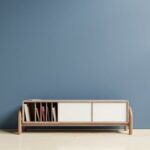What tax category is home decor in? Understanding the tax implications of home decor is essential for both consumers and businesses in the industry. From sales tax regulations to potential income tax deductions, it’s important to be aware of the various tax considerations when buying, selling, or using home decor items.
When it comes to home decor, there are different categories to consider such as furniture, wall art, textiles, and accessories. Each category may have different tax implications when it comes to sales tax, income tax deductions, and even state and local tax considerations.
In this article, we will explore the various aspects of taxation related to home decor. From understanding sales tax regulations to discussing potential income tax deductions for home decor expenses related to business use or home offices, we will provide valuable insights for individuals and businesses involved in the home decor industry.
Additionally, we will also highlight the varying tax obligations for individuals running home decor businesses and provide practical tips for managing the tax implications of buying and selling home decor items.
Types of Home Decor
When it comes to home decor, there are various categories that fall under this umbrella term. Understanding these categories is essential for determining the tax implications of purchasing and selling home decor items. Below are the main types of home decor, each with its own unique characteristics and considerations in terms of taxation.
Furniture
One of the most prominent categories of home decor is furniture. This includes items such as sofas, tables, chairs, beds, and storage units. When it comes to taxation, furniture may be subject to different sales tax rates based on the state or locality in which the purchase is made. Additionally, for individuals running home decor businesses, understanding income tax deductions for furniture used in a business setting is crucial.
Wall Art
Another important aspect of home decor is wall art, which includes paintings, prints, photographs, and other decorative pieces that adorn the walls of a home. From a tax perspective, sales tax regulations for wall art purchases can vary based on factors such as the type of artwork and where it is being sold. Individuals looking to deduct expenses related to wall art used in a business or home office should be aware of specific income tax rules.
Textiles and Accessories
The category of textiles encompasses items such as curtains, rugs, cushions, and other soft furnishings that add color and texture to a space. Meanwhile, accessories include decorative items like vases, candles, sculptures, and other ornamental objects that enhance the overall aesthetic appeal of a room.
For both textiles and accessories, understanding how sales tax applies to these items is important when buying or selling them. Additionally,
In summary,
Sales Tax on Home Decor
When it comes to buying and selling home decor items, understanding the sales tax implications is crucial. Different categories of home decor, such as furniture, wall art, textiles, and accessories, may be subject to varying sales tax regulations.
Here are some key points to consider when it comes to sales tax on home decor:
- Furniture: In many states, sales tax applies to furniture purchases. However, some states may exempt certain types of furniture, such as antiques or used furniture, from sales tax. It’s important to check your state’s specific regulations regarding sales tax on furniture.
- Wall Art: The sales tax on wall art can vary based on factors such as the type of artwork (e.g. original art vs. prints) and where the purchase is made (e.g. in-store vs. online). Some states may exempt certain types of artwork from sales tax if they are considered essential for a home or business.
- Textiles and Accessories: Items such as curtains, rugs, throw pillows, and other textiles and accessories may also be subject to sales tax. However, exemptions or reduced tax rates may apply in certain cases.
Understanding these distinctions can help both buyers and sellers navigate the complexities of sales tax for home decor items. Additionally, keeping detailed records of transactions and consulting with a tax professional can ensure compliance with state regulations.
For individuals running home decor businesses or engaging in frequent buying and selling of home decor items, staying informed about state-specific sales tax regulations is essential for avoiding potential penalties or audits related to sales tax obligations.
Resources for Further Information
To learn more about the specific requirements for collecting and remitting sales tax on home decor items in your state or locality, visit the official website of your state’s department of revenue. Additionally, consulting a qualified tax professional can provide personalized guidance based on your individual circumstances related to buying and selling home decor.
Income Tax Deductions for Home Decor
When it comes to home decor, there may be potential income tax deductions for expenses related to home office or business use. It is important to understand which home decor items may qualify for these deductions and how to properly claim them on your taxes. Here are some potential deductions to consider:
1. Furniture: If you use certain pieces of furniture in your home office for business purposes, you may be able to deduct a portion of the cost as a business expense. This could include desks, chairs, bookshelves, and any other furniture specifically used for conducting business.
2. Wall art: Artwork used to decorate the walls of your home office space may also be deductible if it is directly related to your business. For example, if you are an interior decorator and display pieces that showcase your work, the cost of these items may be eligible for a deduction.
3. Textiles and accessories: Items such as rugs, curtains, or decorative pillows that are exclusively used in your home office or business area could potentially qualify for a tax deduction.
It’s important to keep thorough records of all home decor purchases and clearly indicate which items are being used for business purposes. Consulting with a tax professional can provide valuable guidance on the specific eligibility criteria for income tax deductions related to home decor items used in a home office or business setting.
Home Decor Businesses and Taxation
Running a home decor business can be an exciting venture, but it’s important to understand the tax obligations that come with it. Whether you’re selling handmade items on Etsy or running a full-fledged interior design business, knowing what tax category is home decor falls under is crucial for complying with tax laws and maximizing deductions.
Home decor businesses generally fall under the category of retail, which means that sales tax will be applicable for most transactions. This means that if you’re selling home decor items, you’ll need to collect and remit sales tax to the relevant state and local authorities. It’s essential to familiarize yourself with the specific sales tax rates and regulations in your area to ensure compliance.
When it comes to income tax deductions, home decor businesses may be eligible for certain write-offs. For example, if you have a designated home office space where you conduct business-related activities such as inventory management or client consultations, you may be able to deduct a portion of your home decor expenses as a business expense. Keep detailed records of your expenses and consult with a tax professional to determine which deductions apply to your specific situation.
Operating a home decor business also means dealing with additional taxation considerations such as self-employment taxes and potential licensing or permit fees. Depending on the scale and nature of your business, there may be other tax implications to consider. It’s advisable to seek guidance from a qualified accountant or tax advisor who can provide personalized advice tailored to your home decor business.
| Tax Category | Home Decor |
|---|---|
| Business Type | Retail |
| Applicable Taxes | Sales Tax, Income Tax, Self-Employment Tax |
| Potential Deductions | Home Office Expenses, Business Related Expenses |
State and Local Tax Considerations
Understanding State Sales Tax
When it comes to the tax category for home decor, it’s important to consider the variations in state sales tax regulations. Each state has its own sales tax rate and exemptions, which can significantly impact the cost of purchasing home decor items.
Some states may exempt certain categories of home decor from sales tax, while others may have higher tax rates for luxury items such as high-end furniture or art pieces. It’s essential for consumers and businesses alike to be aware of these differences when buying or selling home decor across different states.
Local Taxes and Zoning Regulations
In addition to state sales tax, local taxes and zoning regulations can also affect the taxation of home decor items. Local municipalities may impose additional taxes on specific types of home decor or require special permits for selling certain items.
For example, some areas have specific regulations for home businesses that sell handmade decor items or vintage furniture. Understanding these local tax considerations is crucial for individuals running home decor businesses or those looking to make large purchases within a particular locality.
Tax Reporting Requirements
Furthermore, individuals and businesses involved in the sale of home decor must comply with state and local tax reporting requirements. This includes collecting and remitting sales tax, obtaining necessary permits and licenses, and filing regular tax returns with accurate information about sales activities. Failure to adhere to these requirements can result in penalties and legal consequences, making it essential to stay informed about the specific tax obligations in each state or locality when dealing with home decor transactions.
As such, navigating the various state and local tax considerations for home decor is a complex but necessary aspect of managing the financial implications of buying, selling, or running a business related to interior design and decoration.
Tax Tips for Home Decor Enthusiasts
When it comes to home decor, understanding the tax implications is essential for both enthusiasts and businesses involved in buying and selling home decor items. Home decor items fall under various tax categories, depending on the specific type of item and its use. Furniture, wall art, textiles, and accessories are the main categories of home decor, each with its own unique tax considerations.
Sales tax regulations for home decor vary by state and locality. In some areas, certain types of home decor items may be exempt from sales tax, while in others, the full sales tax rate may apply. For individuals buying or selling home decor items as part of a business, it’s important to familiarize themselves with the specific sales tax rules applicable to their area.
For those who use home decor items for business or home office purposes, there may be potential income tax deductions available. It’s important to keep detailed records of expenses related to purchasing and using home decor for these purposes in order to claim any eligible deductions during tax filing.
State and local tax considerations also play a significant role in determining the overall tax category for home decor. Different jurisdictions have different rules regarding the taxation of home decor sales and businesses, so it’s crucial to stay informed about the specific regulations that apply to your location.
| Tax Category | Implications |
|---|---|
| Sales Tax | Variations by state and locality; potential exemptions |
| Income Tax Deductions | Possible deductions for business or home office use |
| State and Local Taxes | Varying regulations across different jurisdictions |
Resources for Further Information
In conclusion, understanding the tax category for home decor is essential for both individuals and businesses involved in buying, selling, or using home decor items. Whether it’s determining the sales tax on purchases, exploring income tax deductions related to home decor expenses, or navigating the tax obligations for home decor businesses, being knowledgeable about the tax implications is crucial.
While there may be variations in state and local tax regulations for home decor, there are resources available to provide detailed information and guidance.
One of the most valuable resources for further information on the tax category for home decor is government websites. These websites offer official guidelines and regulations regarding sales tax, income tax deductions, and business taxation related to home decor. Additionally, seeking advice from qualified tax professionals can provide personalized insights and recommendations based on individual circumstances. Tax professionals can offer expertise in maximizing deductions and ensuring compliance with all relevant tax laws.
Furthermore, there are plenty of other resources available to those looking to understand the intricacies of the tax category for home decor. From online forums and communities where enthusiasts share tips and experiences to publications by reputable financial institutions, individuals can access a wealth of information to stay informed about their tax obligations when it comes to home decor. By utilizing these resources, individuals can navigate the complexities of taxation related to home decor with confidence.
Frequently Asked Questions
Can You Write Off Home Decor?
Generally, you cannot write off home decor unless it is used for business purposes. If you have a home office or rental property, certain home decor expenses may be tax deductible.
Are Interior Design Services Taxable in Washington State?
In Washington State, interior design services are considered as professional services and are not subject to sales tax. However, if the designer sells tangible personal property as part of their service, such items may be taxable.
Is Decor Tax-Deductible?
Decor is usually not tax-deductible for personal use. However, if the decor is used for business purposes, such as in a rental property or home office, it may qualify as a deductible business expense.

I’m thrilled to be your companion on this exciting journey through the world of home decor and design. With a passion for turning houses into homes and a keen eye for the finer details, I’m here to help you transform your living spaces into beautiful, functional, and meaningful havens.





